What's New
Displaying results 51 - 60 of 4052
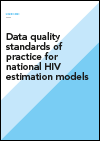
Resource | Publications,
The purpose of this publication is to share leading practices for HIV data quality and to provide standards countries may use to assemble the highest possible quality of programme data for their HIV epidemiological estimates process.
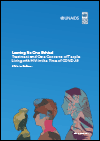
Resource | Publications,
This report highlights several challenges faced by people living with HIV in the country across the HIV care continuum. Issues on various facets of HIV care continuum such as access to HIV facilities and psychosocial support are surfaced and discussed. Policy and program recommendations that will help the in development of the national HIV program that is more robust, with or without the threats of COVID-19, are also presented.
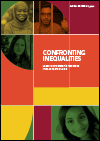
Resource | Publications,
People living with HIV are at a higher risk of severe COVID-19 illness and death, yet the vast majority are denied access to COVID-19 vaccines. Key populations and their sexual partners account for 65% of new HIV infections but are largely left out of both HIV and COVID-19 responses—800 000 children living with HIV are not on the treatment they need to keep them alive.
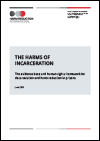
Resource | Publications,
This briefing provides advocates with the evidence base and human rights framework for decarceration and the provision of harm reduction services in prisons.
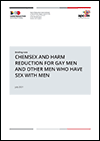
Resource | Publications,
The criminalisation of drug use is prevalent globally, and the availability of harm reduction services is inadequate. However, harm reduction responses for sexualised drug use are even more inadequate, particularly compounded by criminalisation of sex between men. Gay men and other men who have sex with men and people who use stimulants are among the communities insufficiently served by existing or traditional harm reduction services. Furthermore, people engaging in chemsex have multiple vulnerabilities, leading to increased public health risks
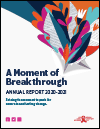
Resource | Publications,
In last year’s letter, we touched on the COVID-19 pandemic, then just bursting into our collective consciousness. A year later, much of the world is deep in another brutal wave, an outcome predicted by public health experts, and one that could and should have been prevented had political decision-makers been willing to act sooner and take human rights seriously.
This only underscores the lessons to be learned, many of them first imparted by the HIV pandemic, but too often ignored. COVID has demonstrated yet again that public health is fundamentally connected to human rights and that failing to respect and protect rights — and, especially, to take positive measures to fulfill rights — leads to more infection, illness, and death. Although COVID differs from HIV in important ways, they both travel along the fault lines of social inequities. The only way we will overcome both pandemics is if we act to respect, protect, and fulfill human rights.
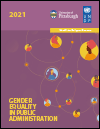
Resource | Publications,
The first comprehensive in-depth research into the issue covering 170 countries, finds that though there has been progress on women’s representation overall in public administration, persistent gaps remain. Women continue to hit a glass ceiling and glass walls that stop them from advancing to positions at the highest levels of power and influence, including in the COVID-19 response. The report provides practical recommendations to help shatter these glass ceilings and glass walls and to reimagine and redesign more gender inclusive and diverse public administrations.
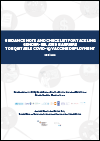
Resource | Publications,
To maximise the benefits of COVID-19 vaccines, urgent efforts are needed to achieve greater vaccine equity. Addressing the known and emerging gender-related inequities is critical. This Guidance Note and Checklist provide a set of practical actions for countries to advance gender equality and equity in the deployment of COVID-19 vaccines.
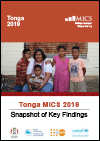
Resource | Publications,
MICS surveys measure key indicators that allow countries to generate data for use in policies, programmes, and national development plans, and to monitor progress towards the Sustainable Development Goals (SDGs) and other internationally agreed upon commitments. The objective of this snapshot of key findings is to facilitate the dissemination and use of results from the Tonga MICS, 2019. The survey methodology and detailed tabulations based on the data collected are available in the Survey Findings Report.

Resource | Publications,
Consisting of five separate booklets, the World Drug Report 2021 provides an in-depth analysis of the global drug markets and paints a comprehensive picture of the measurable effects and potential impact of the COVID-19 crisis on the world drug problem.
The World Drug Report 2021 is aimed not only at fostering greater international cooperation to counter the impact of the world drug problem on health, governance and security, but also, with its special focus on the impact of the COVID-19 pandemic, at assisting Member States in anticipating and addressing challenges that may arise in the near future.





